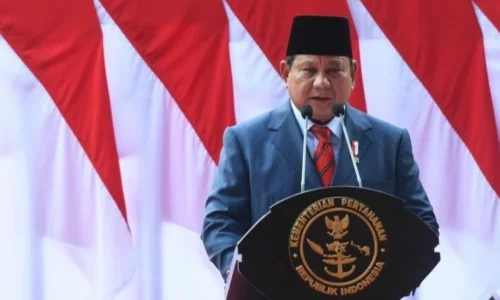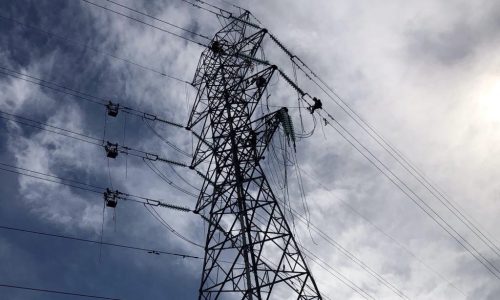PT ThorCon Power Indonesia’s ambition to construct Indonesia’s first Thorium-based Nuclear Power Plant (NPP) faces significant hurdles due to legal uncertainties.
The company, a Foreign Direct Investment (FDI) enterprise owned by the US-based ThorCon International Pte Ltd, is yet to secure legal certainty for its proposed power plant.
With the impending change in leadership from President Joko Widodo to a new president, ThorCon hopes for clarity regarding the continuation of its project.
The company, established in 2021, has earmarked an investment of IDR 17 trillion (US$1.1 billion) to build a Thorium-based NPP on Gelasa Island, an uninhabited island in the Bangka Belitung Islands province. However, they seek legal assurance before committing these funds.
“We place significant hope in the National Energy Council (DEN) to oversee this project, ensuring that if there’s a change in government, this ongoing project won’t be disrupted,” Bob S. Effendi, Director of Operations at ThorCon Power Indonesia, said last October. He emphasized the economic and beneficial values of thorium and nuclear energy, asserting that transitioning from coal to nuclear power is inevitable.
ThorCon has conducted various studies demonstrating the mitigatable impacts of the Thorium-based NPP, ensuring minimum permanent environmental harm.
The company previously proposed the issuance of a Presidential Regulation (Perpres) for the Thorium-based NPP project and sought inclusion in the National Strategic Projects (PSN).
Named the ThorCon Molten Salt Reactor (TMSR) project with a capacity of 500 Megawatts (MW), the project aims to commence operations by 2030. Thus, ThorCon asserts that the first cutting of steel for the TMSR must occur this year.
However, in the absence of certainty, the energy company threatens to withdraw its investment in Indonesia.
In early February, the government appointed Coordinating Minister for Maritime Affairs and Investment Luhut Binsar Pandjaitan as the Chairman of the Nuclear Energy Program Implementation Organization (NEPIO).
NEPIO’s organizational structure has been conveyed to President Joko Widodo, aiming to accelerate the preparation and development of NPPs to achieve the energy transition and emission targets by 2060.
Despite these efforts, the construction of NPPs remains contentious, especially regarding safety concerns.
The United Nations Scientific Committee on the Effects of Atomic Radiation (UNSCEAR) has documented nuclear accidents worldwide, highlighting the potential risks of radioactive contamination.
To address safety concerns, stringent regulations and oversight mechanisms are essential. Indonesia’s nuclear development plans are subject to close supervision by institutions such as BRIN (National Research and Innovation Agency), BAPETEN (Nuclear Energy Regulatory Agency), and oversight from the International Atomic Energy Agency (IAEA).
However, the establishment of NPPs in Indonesia still requires legal frameworks. The proposal for NPP development is expected to be included in the New and Renewable Energy Bill (RUU EBET).
Yet, the deliberations on RUU EBET have been delayed due to the 2024 General Elections, prolonging the uncertainty surrounding the Thorium-based NPP project.
While ThorCon remains one of the most committed investors in Indonesia’s nuclear development, the timeline for its realization hinges on legislative progress.
With the complexities surrounding energy policy debates and the impending election-related distractions, the fate of the Thorium-based NPP project remains uncertain.









